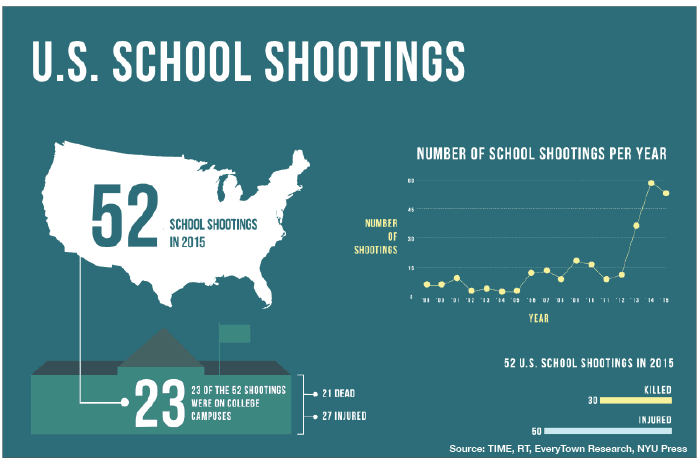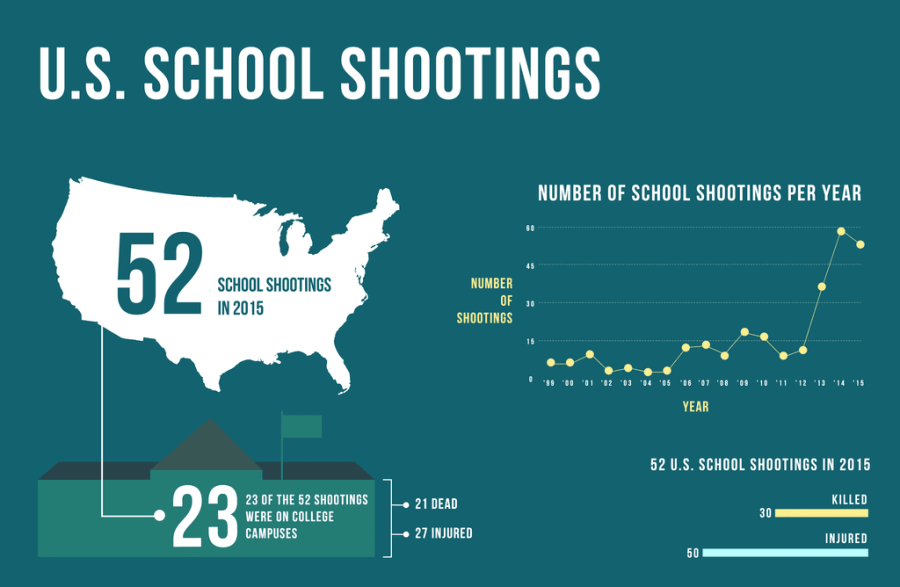
Gov. Jerry Brown signed a gun control bill into law on Saturday, which will increase state restrictions on those in possession of firearms. Senate Bill 707 expands on current state gun legislation by directly prohibiting citizens from carrying concealed weapons on California school and college campuses.
California State Senator and author of the bill Lois Wolk hailed its ratification in a press statement on Saturday.
“We took an important step toward making our schools and college campuses safer by closing this major loophole in California law,” Wolk said. “SB 707 won’t prevent all campus shootings, but it will make our schools and campuses safer by working to ensure that the only people allowed to carry guns on campuses are law enforcement.”
The ban comes in the wake of several recent school shootings. Since the beginning of October, three shootings with at least one fatality have occurred on a school campus. The shooting at Umpqua Community College in Oregon claimed 10 lives, including the shooter’s, along with nine nonlethal injuries.
Originally, California law forbade a person from openly carrying a firearm within 1,000 feet of school or university property, unless authorized by administrators. SB 707 will extend this prohibition to include concealed firearms, making it a criminal offense for citizens to be caught with a weapon in their glove compartment or on their person.
The bill includes exemptions for active and retired law enforcement officers. However, the exemption does not apply unless authorized by their former agency.
Criticism has already accumulated since SB 707’s passage just days ago, particularly from Second Amendment advocacy groups. President of the Firearms Policy Coalition Brandon Combs derided the bill in a press statement, saying that it leaves ordinary citizens without the ability to defend themselves.
“Victims of domestic violence and stalking, judges and prosecutors and public defenders … will now have to leave their registered self-defense handguns at home when picking up their children at school, leaving them without the necessary protection,” Combs said. “It is an attack on the most vulnerable in our society.”
The Firearms Policy Coalition sent over 40,000 letters to Gov. Brown’s office just days before he was set to sign SB 707, urging him to veto the legislation, according to the coalition’s website.
UC Davis Police Chief Matthew Carmichael testified in support of the bill on behalf of the University of California because it does not prevent law enforcement officers from bearing arms.
“Protecting today’s schools is a daunting task,” Carmichael said. “With the passage of SB 707, we are providing our law enforcement officers the tools they need to keep our schools safe.”
The UC system was one of SB 707’s main supporters. In an email exchange between California State Senator and head of the Senate Public Safety Committee Loni Hancock and the UC system’s legislative director Jason Murphy on April 13, 2015, the school system expressed its support for the bill, and suggested the exemption for retired law enforcement.
“The University of California supports efforts to keep firearms off of campus … However, [the UC system] believes that retired police officers … should continue to have the same rights as provided under existing law,” Hancock wrote. “SB 707, if amended, would assist us significantly.”
California has been recognized as having some of the nation’s toughest gun laws. In a 2014 study conducted by the legal group Law Center to Prevent Gun Violence, California was ranked first in the nation for gun-control legislation. According to the same study, California was also ranked with having the ninth lowest number of gun deaths per capita among all states.








